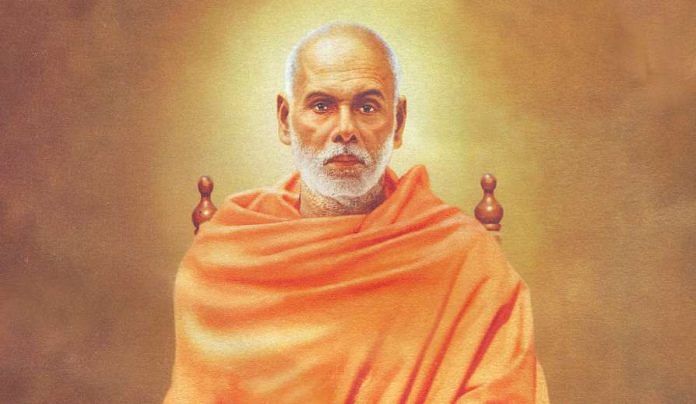Narayana Guru was a saint, social reformer, philosopher, and educationist. Born to Madan Asan and Kuttiyamma in an Ezhava family in 1856, in Kerala’s Chempazhanthy village near Thiruvananthapuram, Guru grew up to work for the upliftment of the Ezhava people and those from ‘untouchable’ castes. He coined the phrase: “One Caste, One Religion, One God” and preached the noble ideal of the ‘oneness of mankind’. On his death anniversary, it is imperative to know about his fight against the caste system for social equality in the caste-ridden Kerala society of the 19th and 20th centuries.
Early this year, the Kerala government proposed presenting Sree Narayana Guru on the state’s tableau for the Republic Day celebrations in New Delhi. But the central government pitched Adi Sankaracharya, who propounded the Advaita philosophy. The rounds of discussions reached an impasse as the Centre kept suggesting religious themes, and the Kerala government kept proposing secular representations. In the end, Kerala’s tableau was rejected altogether.
‘This is not a Brahmin Shiva’
In 1888, when Narayana Guru visited Aruvippuram, a village located in the southern district of Thiruvananthapuram, he picked up a rock from the Neyyar River and consecrated it as Lord Shiva. People also started worshipping it with flowers, camphor, and incense sticks. As word spread, a group of agitated Brahmins reached the spot the next day and shouted at Narayana Guru. He replied, “This is not a Brahmin Shiva, but an Ezhava Shiva.” The Brahmins were left stunned and tongue-tied.
Back in the day, only Brahmins were allowed to install idols. Guru was the first non-Brahmin in Kerala to consecrate a Shiva idol. He went on to consecrate many such Shiva idols and temples across Kerala and Tamil Nadu.
Then, Guru moved to Sivagiri in Varkala and set up a school for children from lower strata of society. It is also the place where Guru’s samadhi (tomb) is situated. Thousands of devotees visit the pilgrimage centre every year.
Also read: Modi’s reforms, Ambedkar’s ideals – It’s time to debate bringing back original Preamble
A staunch critic of Hinduism
Novelist and historian P.K. Balakrishnan, in his book Narayana Guru, writes that Guru made it clear that he didn’t want to be seen as a Hindu sage when he said: “It is the British who gave us Sanyasam (sagehood) and they are our gurus. And if it was in the time of Ram, Sudras and Atisudras wouldn’t be allowed an ascetic life (Sambuka, a Sudra, was beheaded by Ram himself for his pursuit of sagehood) because the Hindus rule by the Smritis.”
The Sangh Parivar is trying to co-opt Guru, a staunch critic of Hinduism, so that it can garner the Bahujan votes in the state.
Paul Zacharia, a popular Malayalam writer, in one of his articles, says people know about the social reformer and progressive image of Narayana Guru but not many remember him for his ‘liberating humour’. Once when Guru was asked by a judge whether burning or burying was the right way to dispose of dead bodies, he replied, “Crush them in an oil press, they will make good manure.” When the judge wailed, Guru asked him: “Why? Will it hurt?”
But, what is saddening to see is that Narayana Guru’s writings still don’t find a place in Kerala’s syllabuses. Guru laid emphasis on modern education and learning English, saying it was the way to enlightenment and liberation. It is essential for both Kerala and the rest of India to cherish and celebrate the secular and pluralistic legacy of Narayana Guru to counter the propaganda and polarisation efforts of Hindutva forces.
(Edited by Prashant)



